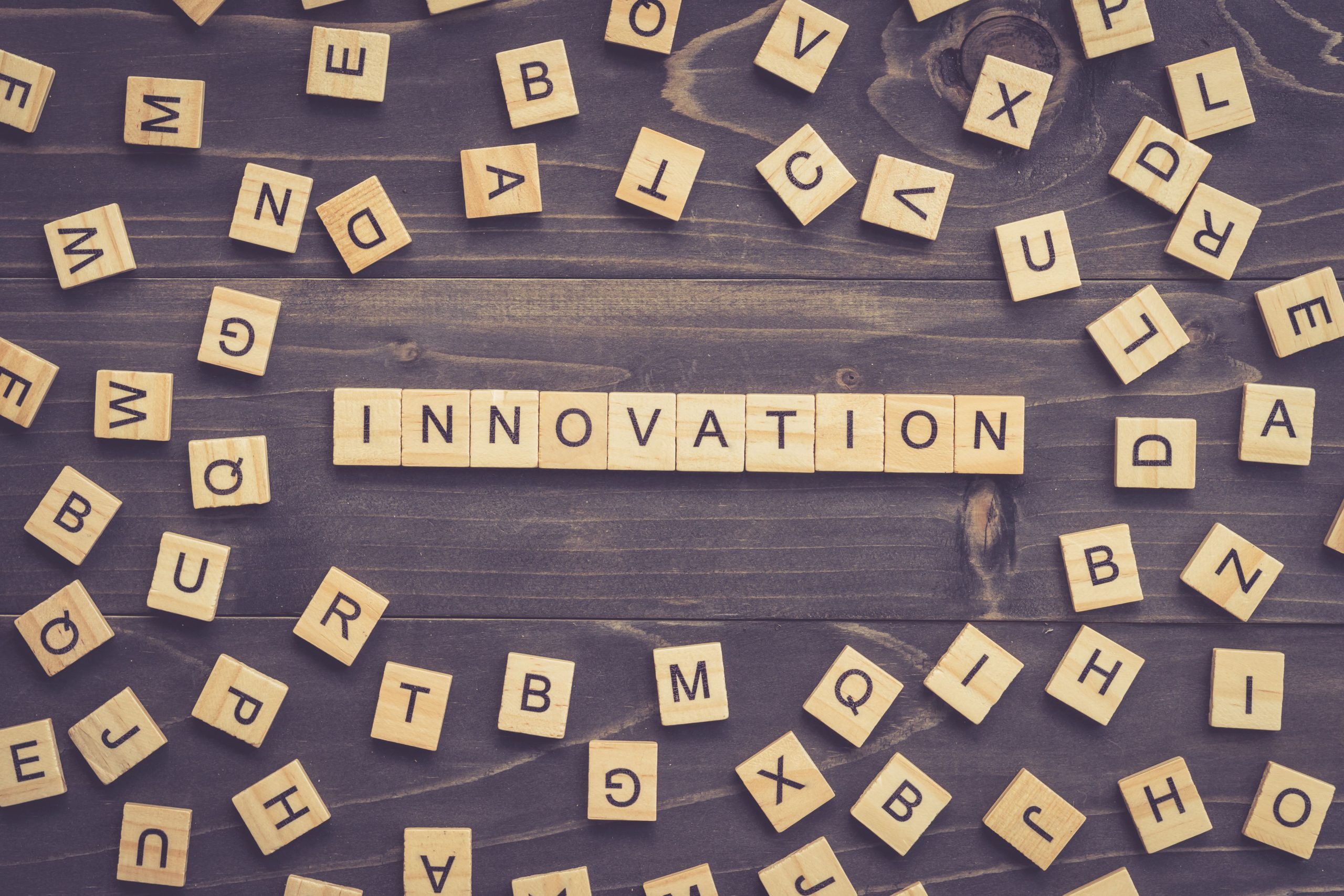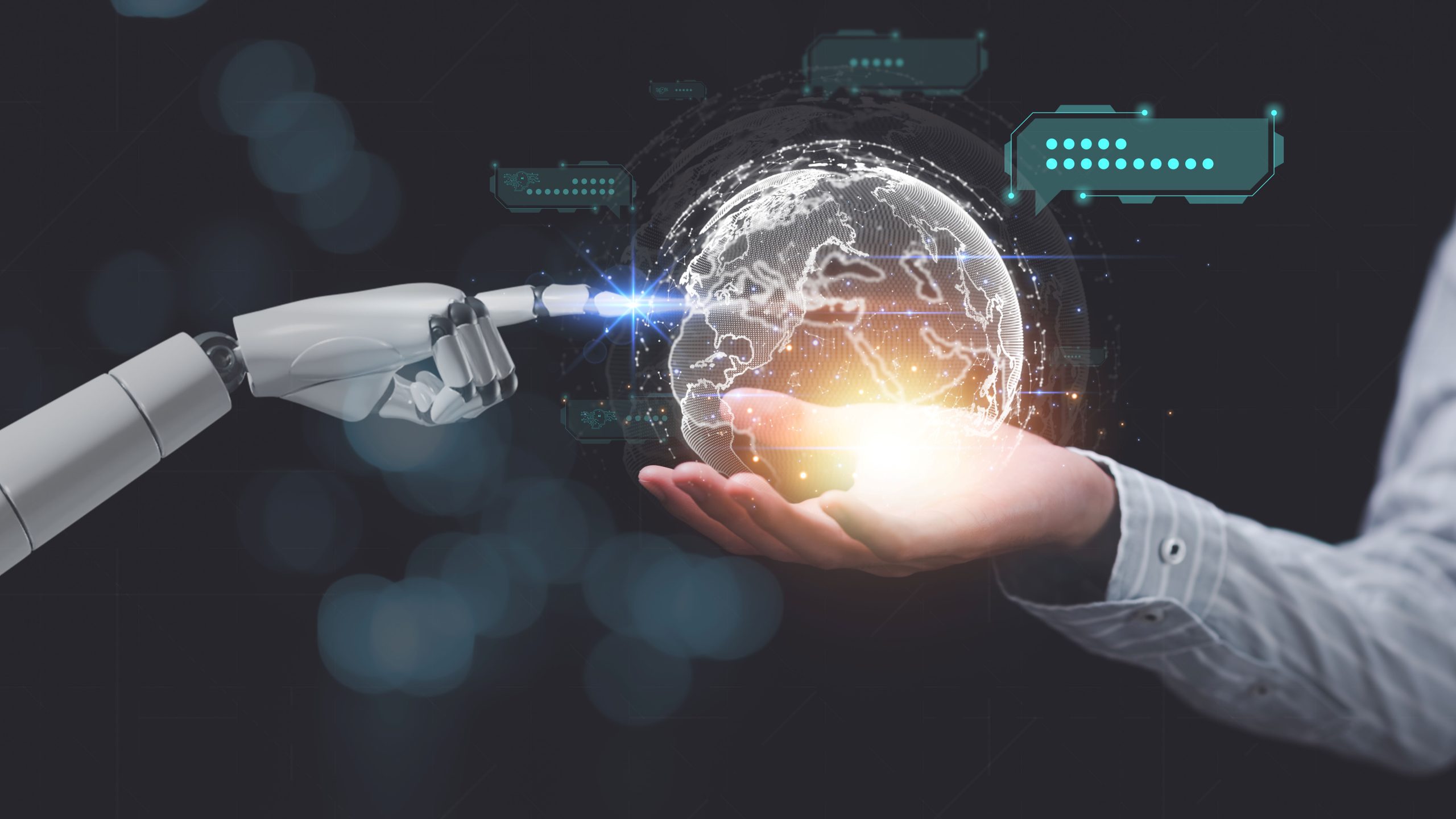In the ever-evolving landscape of global business, Europe stands as a pivotal player, both in terms of its rich history of innovation and its steadfast commitment to embracing emerging technologies.
At the heart of this dynamic environment lies the transformative power of artificial intelligence (AI) and cutting-edge technologies, which are redefining the contours of European business innovation.
Europe’s position in the global tech landscape is one of prominence and promise. With a diverse array of industries spanning from traditional manufacturing to burgeoning tech startups, Europe encapsulates a unique blend of heritage and innovation.
Despite facing formidable competition from tech giants in other regions, Europe continues to assert its influence through a combination of ingenuity, adaptability, and strategic investments in research and development.
As we delve deeper into the role of AI and technology in European business innovation, it becomes evident that the continent is not merely a bystander in the technological revolution but a driving force at its forefront.
From established enterprises to nimble startups, organizations across Europe are harnessing the power of AI and technology to streamline operations, enhance productivity, and unlock new avenues of growth.
In this article, we embark on a journey to explore the multifaceted impact of AI and technology on European business innovation. By examining key trends, success stories, and challenges, we aim to unravel the intricate tapestry of Europe’s technological renaissance and illuminate the path forward for businesses seeking to thrive in an increasingly digital world.
Join us as we uncover the transformative potential of AI and technology in shaping the future of European business landscape.
Overview of European Business Landscape

Europe’s business landscape is a tapestry woven with diversity, spanning a multitude of industries and sectors that reflect its rich heritage and dynamic economy.
From traditional manufacturing to cutting-edge technology startups, European businesses encompass a wide spectrum of enterprises, each contributing to the continent’s economic vibrancy and global competitiveness.
Diverse Industries and Sectors
- Manufacturing: Historically, Europe has been a hub for manufacturing excellence, particularly in sectors such as automotive, aerospace, and machinery. Countries like Germany, France, and Italy are renowned for their precision engineering and high-quality manufacturing processes.
- Finance and Banking: Europe boasts a robust financial services sector, with major financial centers like London, Frankfurt, and Zurich playing pivotal roles in global finance. European banks and financial institutions are instrumental in facilitating international trade and investment.
- Technology and Innovation: Europe is home to a burgeoning tech ecosystem, with innovative startups and established tech giants driving advancements in fields such as artificial intelligence, biotechnology, and clean energy. Tech hubs like Silicon Valley, London, Berlin, and Stockholm are hotbeds of entrepreneurial activity and technological innovation.
- Healthcare and Pharmaceuticals: European countries have made significant strides in healthcare and pharmaceutical research, with leading companies developing breakthrough treatments and medical technologies. The European Union (EU) plays a central role in coordinating healthcare policies and promoting cross-border collaboration in medical research.
- Agriculture and Food Production: Agriculture remains an important sector in many European countries, with a focus on sustainable farming practices and high-quality food production. The EU’s Common Agricultural Policy (CAP) supports farmers and promotes agricultural innovation to ensure food security and environmental sustainability.
Traditional Strengths and Challenges
- Innovation and Creativity: European businesses are renowned for their innovative spirit and emphasis on creativity. From luxury fashion brands to cutting-edge tech startups, Europe has a long history of pioneering inventions and breakthrough discoveries.
- Skilled Workforce: Europe benefits from a highly skilled and educated workforce, with a strong emphasis on vocational training and lifelong learning. The continent’s universities and research institutions produce top talent in fields ranging from engineering to finance.
- Cultural Diversity: Europe’s cultural diversity is a source of strength, fostering cross-cultural exchange and collaboration. Businesses operating in Europe have access to diverse markets and consumer demographics, enabling them to tailor their products and services to meet diverse customer needs.
- Regulatory Environment: European businesses must navigate a complex regulatory landscape characterized by stringent labor laws, environmental regulations, and data privacy requirements. While these regulations promote consumer protection and environmental sustainability, they can also pose compliance challenges for businesses.
- Global Competition: European businesses face intense competition from global rivals, particularly from emerging economies in Asia and North America. To remain competitive, European companies must continually innovate and adapt to changing market dynamics while leveraging their strengths in technology, innovation, and skilled workforce.
As European businesses navigate these traditional strengths and challenges, they are increasingly turning to AI and technology as catalysts for innovation and growth.
In the following sections, we will explore how these transformative technologies are reshaping the European business landscape and driving the continent’s future prosperity.
The Rise of Artificial Intelligence in European Business

Artificial intelligence (AI) is revolutionizing the way European businesses operate, driving efficiency, innovation, and competitive advantage across a wide range of sectors. From manufacturing to healthcare, AI technologies are being rapidly adopted, transforming traditional business models and unlocking new growth opportunities.
Adoption of AI Technologies Across Various Sectors
- Manufacturing: In the manufacturing sector, AI-powered robotics and automation are optimizing production processes, reducing costs, and enhancing product quality. European manufacturers are deploying AI-driven predictive maintenance systems to minimize downtime and maximize equipment efficiency.
- Finance and Banking: European banks and financial institutions are leveraging AI for risk management, fraud detection, and customer service. AI-powered chatbots and virtual assistants are providing personalized banking experiences, while machine learning algorithms are analyzing vast amounts of financial data to identify trends and patterns.
- Healthcare: AI is revolutionizing healthcare delivery in Europe, with applications ranging from medical imaging and diagnosis to drug discovery and personalized medicine. European hospitals are using AI algorithms to analyze medical images and assist clinicians in making accurate diagnoses, leading to improved patient outcomes and reduced healthcare costs.
- Retail and E-commerce: European retailers are harnessing AI to enhance the customer shopping experience, optimize inventory management, and personalize marketing campaigns. AI-driven recommendation engines are analyzing customer preferences and behavior to deliver targeted product recommendations, driving sales and customer loyalty.
- Transportation and Logistics: AI technologies are transforming transportation and logistics operations in Europe, enabling more efficient route planning, fleet management, and supply chain optimization. European logistics companies are using AI-driven predictive analytics to forecast demand, minimize transportation costs, and improve delivery efficiency.
Case Studies and Examples
- Siemens: The German multinational company Siemens has implemented AI-powered predictive maintenance systems across its manufacturing facilities. By analyzing sensor data from machinery and equipment, Siemens can identify potential maintenance issues before they occur, reducing downtime and maintenance costs.
- DeepMind (Google): DeepMind, a UK-based AI research lab acquired by Google, has partnered with Moorfields Eye Hospital in London to develop AI algorithms for analyzing retinal scans. The AI system can detect signs of eye diseases such as diabetic retinopathy and age-related macular degeneration with high accuracy, helping clinicians diagnose and treat patients more effectively.
- Zalando: The European e-commerce giant Zalando uses AI algorithms to personalize the online shopping experience for millions of customers. By analyzing browsing behavior, purchase history, and fashion preferences, Zalando’s recommendation engine suggests relevant products to individual shoppers, driving higher conversion rates and revenue.
Advantages of AI in European Business
- Efficiency: AI technologies streamline business processes, automate repetitive tasks, and optimize resource allocation, leading to increased efficiency and productivity.
- Cost-effectiveness: By reducing manual labor and improving resource utilization, AI helps European businesses lower operating costs and achieve greater cost-effectiveness.
- Innovation: AI enables European businesses to innovate faster, develop new products and services, and stay ahead of the competition in rapidly evolving markets.
As European businesses continue to embrace AI technologies, they are poised to unlock new levels of efficiency, cost-effectiveness, and innovation, driving sustainable growth and prosperity across the continent.
Technology as a Catalyst for Innovation

Beyond artificial intelligence (AI), a constellation of transformative technologies is reshaping the landscape of European businesses, driving innovation, and propelling them into the future.
From the Internet of Things (IoT) to blockchain and big data analytics, these technologies are revolutionizing traditional business models and unlocking new opportunities for growth and competitiveness.
Examination of Technology Driving Innovation
- Internet of Things (IoT): The IoT refers to the network of interconnected devices embedded with sensors and software that enable them to collect and exchange data. In Europe, IoT technologies are revolutionizing industries such as manufacturing, transportation, and healthcare by enabling real-time monitoring, predictive maintenance, and enhanced decision-making.
- Blockchain: Blockchain technology, best known for its role in powering cryptocurrencies like Bitcoin, offers secure and transparent transactions through decentralized ledgers. European businesses are exploring blockchain applications beyond finance, including supply chain management, identity verification, and smart contracts, to streamline operations and enhance trust.
- Big Data Analytics: Big data analytics involves the collection, storage, and analysis of large volumes of data to uncover insights and patterns that can inform decision-making. In Europe, businesses are leveraging big data analytics to gain a deeper understanding of customer behavior, optimize operations, and drive innovation in product development, marketing, and risk management.
Impact of IoT, Blockchain, and Big Data Analytics
- IoT: European manufacturing companies are deploying IoT sensors to monitor equipment performance and predict maintenance needs, reducing downtime and improving operational efficiency. In the transportation sector, IoT-enabled fleet management systems are optimizing route planning and fuel consumption, leading to cost savings and environmental benefits.
- Blockchain: European retailers are using blockchain technology to track the provenance of products across the supply chain, ensuring authenticity and ethical sourcing. In the financial sector, blockchain-based smart contracts are automating processes such as loan approvals and insurance claims, reducing administrative overhead and enhancing transparency.
- Big Data Analytics: European healthcare providers are harnessing big data analytics to analyze patient data and identify trends that can inform treatment decisions and improve outcomes. In the retail industry, big data analytics tools are helping companies personalize marketing campaigns, optimize pricing strategies, and forecast demand with greater accuracy.
Examples of Companies Leveraging Technology for Competitive Edge
- Bosch: The German multinational engineering and technology company Bosch is leveraging IoT technologies to transform manufacturing processes through its “Industry 4.0” initiative. By connecting factory equipment and machinery to IoT sensors and analytics platforms, Bosch aims to increase productivity, reduce costs, and drive innovation in manufacturing.
- Maersk: The Danish shipping giant Maersk is pioneering the use of blockchain technology to digitize and streamline global trade processes. Through its collaboration with IBM on the TradeLens platform, Maersk is digitizing documentation, improving supply chain visibility, and reducing paperwork, leading to faster and more efficient international trade transactions.
- Telefónica: The Spanish telecommunications company Telefónica is harnessing big data analytics to gain insights into customer behavior and preferences. Through its “Smart Steps” platform, Telefónica analyzes anonymized mobile phone data to provide valuable insights to retailers, advertisers, and city planners, helping them make data-driven decisions and gain a competitive edge in their respective markets.
As European businesses embrace technologies like IoT, blockchain, and big data analytics, they are unlocking new opportunities for innovation, efficiency, and competitiveness, positioning themselves for success in the digital age.
Addressing Challenges and Concerns

The adoption of AI and other advanced technologies in European businesses comes with a set of challenges and concerns that must be addressed to ensure sustainable and responsible growth.
As these technologies become integral to business operations, it is crucial to navigate the complexities of regulatory frameworks, ethical considerations, and risk mitigation strategies.
Challenges and Concerns
- Data Privacy and Security: The widespread use of AI and big data analytics raises significant concerns about data privacy and security. European businesses must ensure that the personal data of customers and employees is protected from breaches and misuse.
- Ethical AI Use: AI systems can sometimes produce biased or discriminatory outcomes if not properly managed. Ensuring that AI algorithms are transparent, fair, and unbiased is a critical ethical consideration.
- Job Displacement: The automation of tasks through AI and other technologies can lead to job displacement, raising concerns about the future of work and the need for workforce reskilling and upskilling.
- Complex Regulatory Landscape: Navigating the complex and evolving regulatory environment in Europe can be challenging for businesses. Compliance with data protection laws, such as the General Data Protection Regulation (GDPR), and other sector-specific regulations is essential.
- Technological Dependence: Over-reliance on technology can create vulnerabilities, including risks associated with system failures, cyberattacks, and technological obsolescence.
Regulatory Frameworks and Ethical Considerations
- General Data Protection Regulation (GDPR): The GDPR, implemented in 2018, sets stringent requirements for data protection and privacy in Europe. It mandates that businesses handle personal data with transparency, security, and accountability, giving individuals greater control over their personal information.
- Ethics Guidelines for Trustworthy AI: The European Commission has developed guidelines to promote trustworthy AI, emphasizing principles such as human agency, fairness, transparency, accountability, and the avoidance of harm. These guidelines aim to ensure that AI technologies are developed and used in ways that respect fundamental rights and societal values.
- AI Act: The proposed AI Act by the European Commission aims to create a harmonized regulatory framework for AI across the EU. It categorizes AI systems based on their risk levels (unacceptable, high, limited, and minimal) and sets out requirements for high-risk AI applications, including rigorous testing, documentation, and human oversight.
Efforts by Businesses and Policymakers
- Corporate Responsibility and Ethical AI Initiatives: European companies are increasingly adopting ethical AI practices and establishing internal guidelines to ensure responsible use of AI. For example, SAP, a leading software company, has implemented an AI ethics code and established an external advisory panel to guide its AI development.
- Workforce Reskilling Programs: To address job displacement concerns, businesses and governments are investing in reskilling and upskilling programs. Initiatives like the European Skills Agenda aim to equip workers with the digital skills needed to thrive in the AI-driven economy.
- Cybersecurity Measures: To mitigate data security risks, businesses are enhancing their cybersecurity infrastructure, adopting advanced encryption technologies, and conducting regular security audits. Public-private partnerships, such as the European Cybersecurity Organization (ECSO), promote collaboration to strengthen cybersecurity across Europe.
- Collaborative Research and Innovation: Policymakers are fostering collaborative research and innovation through funding programs like Horizon Europe, which supports projects that advance AI and technology while addressing ethical and societal challenges. These initiatives encourage cross-border collaboration and knowledge sharing among European businesses and research institutions.
By addressing these challenges and concerns, European businesses and policymakers are working together to create an environment where AI and advanced technologies can flourish responsibly.
This collaborative approach ensures that the benefits of technological innovation are realized while safeguarding individual rights, promoting ethical standards, and fostering societal well-being.
Key Takeaways
Throughout this exploration of AI and technology in European business innovation, we have seen how the integration of advanced technologies is reshaping industries across the continent.
Europe’s business landscape, rich in tradition and potential, is characterized by a diverse range of sectors, from traditional manufacturing to innovative tech startups. This diversity serves as a foundation for resilience and adaptability.
The rise of AI has been particularly transformative, with technologies being adopted across various sectors, enhancing efficiency, cost-effectiveness, and innovation. Success stories from companies like Siemens, DeepMind, and Zalando illustrate how AI is being effectively integrated into European businesses, driving significant advancements.
Beyond AI, other technologies such as the Internet of Things (IoT), blockchain, and big data analytics are also catalyzing innovation. Companies like Bosch, Maersk, and Telefónica are leveraging these technologies to gain competitive advantages, demonstrating the broad impact of technological adoption.
However, the journey towards embracing these technologies is not without challenges. Data privacy concerns, ethical considerations, job displacement, and regulatory complexities present significant hurdles. It is crucial for businesses and policymakers to work together to address these issues, ensuring sustainable and responsible growth.





